Youth Exchange “Bike-up”: Our new perspectives
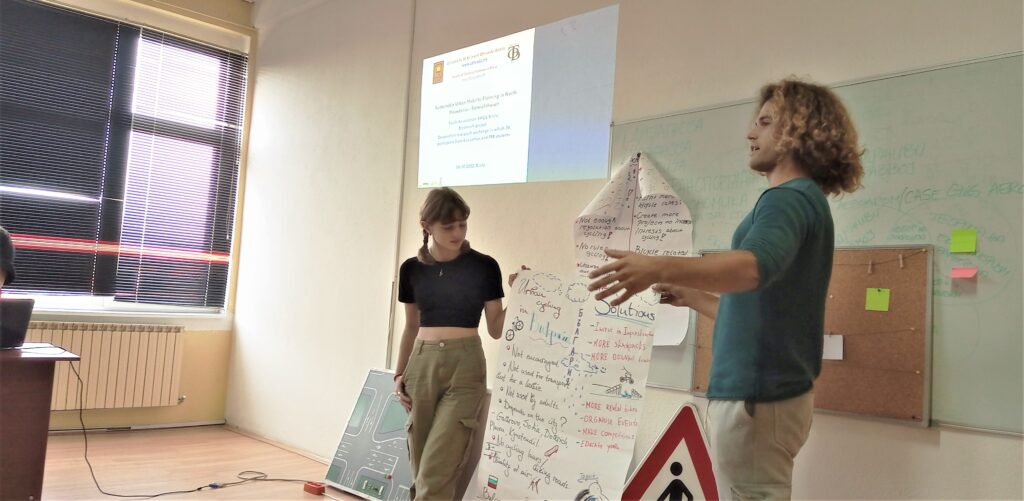
By Stanislav Krastev I really liked the project! The experience I had and the things I learned here in Bitola are more about Erasmus program and youth exchanges. I really learned a lot. But, this is also about the topic, biking. I learned how different parts of the bike are called in different languages, I learned how to paint murals and also to fix bikes. Last time when I cycled before this project was about 2 years. And now I am thinking about buying new bike and using it for urban transportation. I’ll surely recommend the Erasmus program to my friends and classmates! By Malena Velinova The experience I had with this project was also amazing. I met some amazing and full of life people and learned a lot from them about bikes and the youth exchanges in general. I also learned a lot about this from the organizers of this exchange. Before coming here, I didn’t know much about bikes and their importance, but now it is different. I know much more, the types f bikes, what they are used for, how they are helpful to the environment and a lot of other stuff. I am ready now to “bike up” my life and to take more responsible role toward my city where I live!
Youth Exchange “Bike-up”: Bitola vs. Denmark
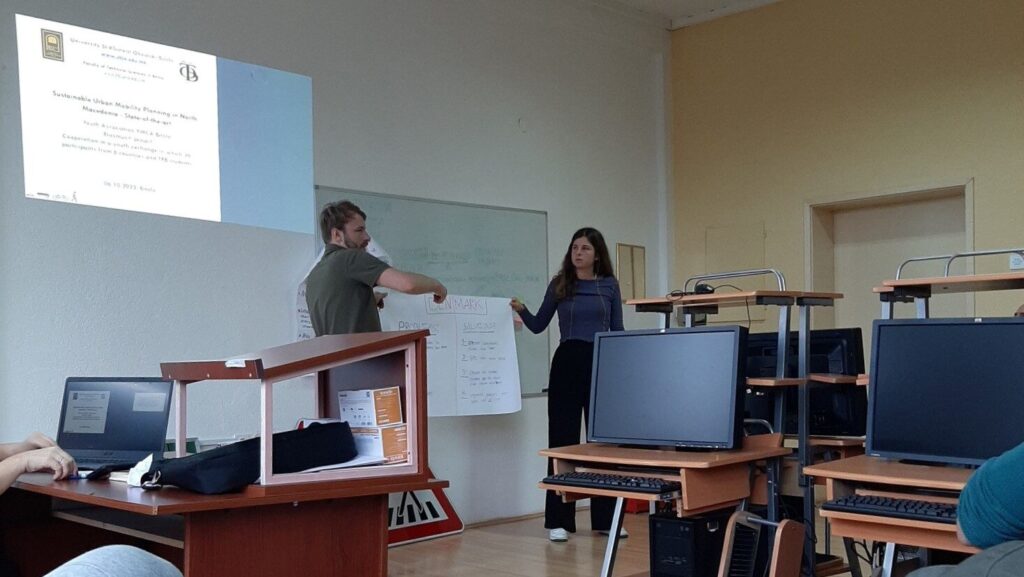
By Anna-Katharina Lüers My name is Anna-Katharina Lüers and I am coming from the Danish Youth Team, from Denmark. This event called “Bike up” was held in Bitola, North Macedonia and was about urban transport in Europe, or at least it is what was I interested about. During the activities in this youth exchange I have become aware that in Denmark we have a lot more bikes and therefore also, a lot of parking spots for them. This is in regard the parking spaces not available here in Bitola. Here, there is a few spots, but not enough, and therefore you need to park the bike on the side of the street. Another thing is that there is also only one “real” bike line in the town of Bitola and if you are not using that, you need to share the area with the pedestrians or cars on the road, which makes it more difficult and slower to get to your goal. There is very high curbstones in Bitola, which makes it hard to switch roads, because you need to get off your bike a lot. With the infrastructure in Denmark, you can easily attend where you need to go and bike rides are more prioritized than people with cars. I had great time during this exchange, I learned a lot new things for other countries as well making new friends. From the difficulties other countries had, I learned a lot of things related with bikes. My general impression is that we need to appreciate the infrastructure that helps to bike more easily and to always help and support initiatives that are raising awareness about this things in the communities were biking is not well developed. By Petar Kazakov The project was interesting and helpful. I am already in contact with many people who wants to ride bikes, but in the urban infrastructure they can’t, since the infrastructure of the city itself doesn’t allow it. This was the biggest awareness for me, and the other thing is that I became more aware is the fact that we need to know how to repair bikes at elementary level. This is lacking, but is vey helpful. Overall, the project was good and I am satisfied how all turned up.
“Bike & Upcycle” Erasmus+ Youth Exchange
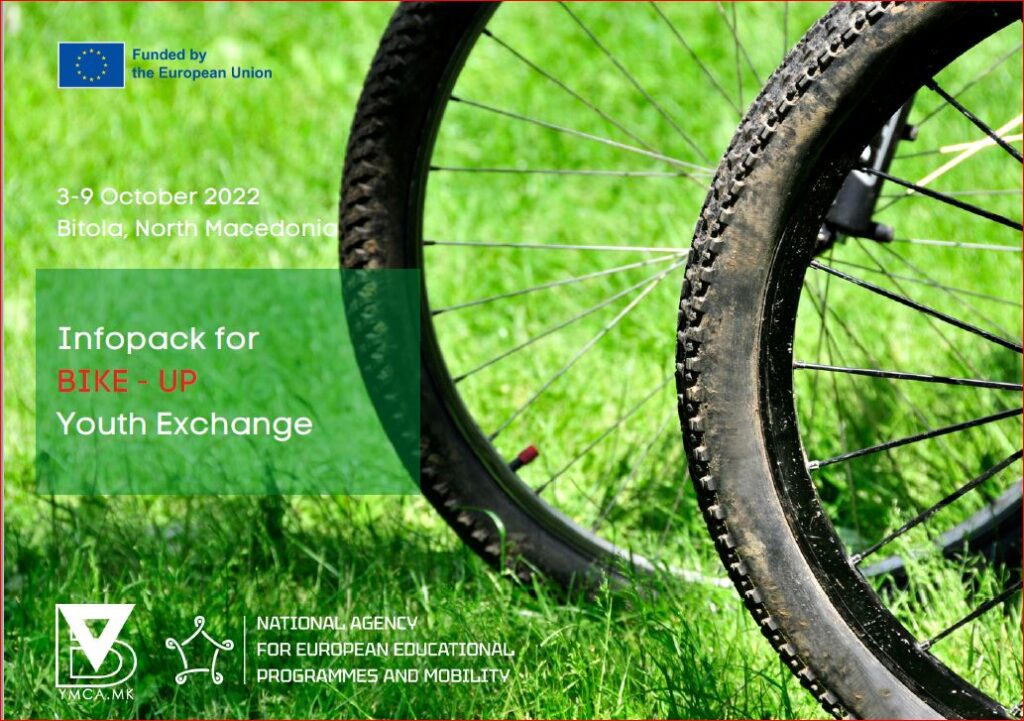
From 2-10 October 2022 in Bitola, N. Macedonia was held this Youth Exchange with participants from Croatia, Denmark, Bulgaria and N. Macedonia. The participants were faced with the topics of transport, environment, climate change and sustainability. They were able to get deep insights into the situations of the other countries that were partners in this exchange, which let them compare the situation with their own home country. They reflected on the similarities and differences in their urban transport realities, and they better understood the context they live in. The working methods were based on non-formal education principles. There was diverse indoor and outdoor workshops that started with introduction games, then team-building games, lectures, brainstorming activities on various related issues, study visits, movie nights and individual and group reflections. Learning by doing methodology was implemented in the outdoor settings – riding bicycles in the city, bicycles repairing, discussions and mural painting. Participants rotated in different group activities such as digital activism, bicycle repairs and artistic expression. Related articles from our website see here from MK, here from DK, and here from BG. This project was approved by our National Agency.
YMCA Western Balkans Initiative Strategy
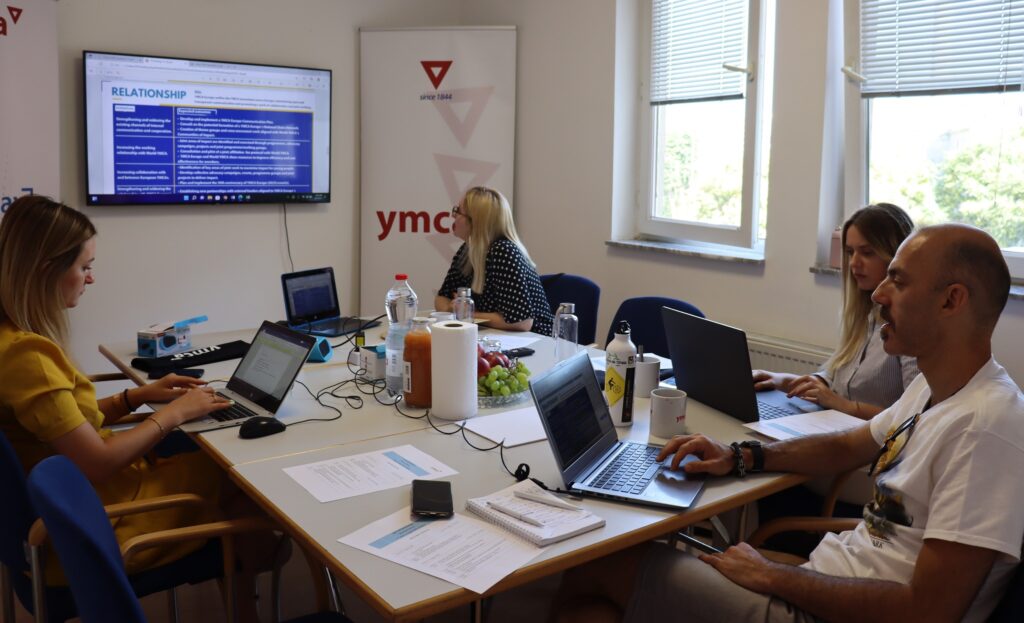
Initiatives that unite and call for a joint search for solutions in the interest of offering better quality and more sustainable programs for the youth of the region are always worthy of respect. In the last decade, the YMCA organizations in the Western Balkans developed with undiminished capacity and reached the level of offering quality program activities for the young people in the region. But the last 2 years with the Covid-19 pandemic have shown us a different reality and more or less brought out certain anomalies and shortcomings in the functioning of organizations. Although to some extent in similar or different levels of organizational development and context of action, the YMCA organizations from Albania, Kosovo, Macedonia and Serbia in the spring of 2021 started joint online meetings with the aim of discussing the new normality that has been imposed on us and discussing the relationship of the organizational problems we are currently facing. So, as key areas in which we need to strengthen in the next period are the areas of good management, management structures, work on project-based activities, dependence on grants, weak sustainability of projects, weak coordination at the regional level and readiness to act with joint EU projects on larger project applications. In the several held joint meetings, in addition to realizing the challenges and the fields in which we need to act, we also worked on the preparation of joint project applications, during which we submitted two. The initiative continues with unabated dynamics in 2022, in which we hope that with the reduction of the pressure from the pandemic, we will finally be able to have meetings with physical presence. The “Western Balkans Initiative” also started with activities that include regional visits to partners. At the first physical meeting after a long time since the initiative started, all involved countries Macedonia, Serbia, Kosovo and Albania met at the YMCA office in Kosovo. The connection between national strategies and how they fit together into a larger, Balkan narrative was discussed in more detail. We look forward to what this group will bring to the youth of the Western Balkans! You can see more photos from the meeting here.
Youth Center in every Municipality
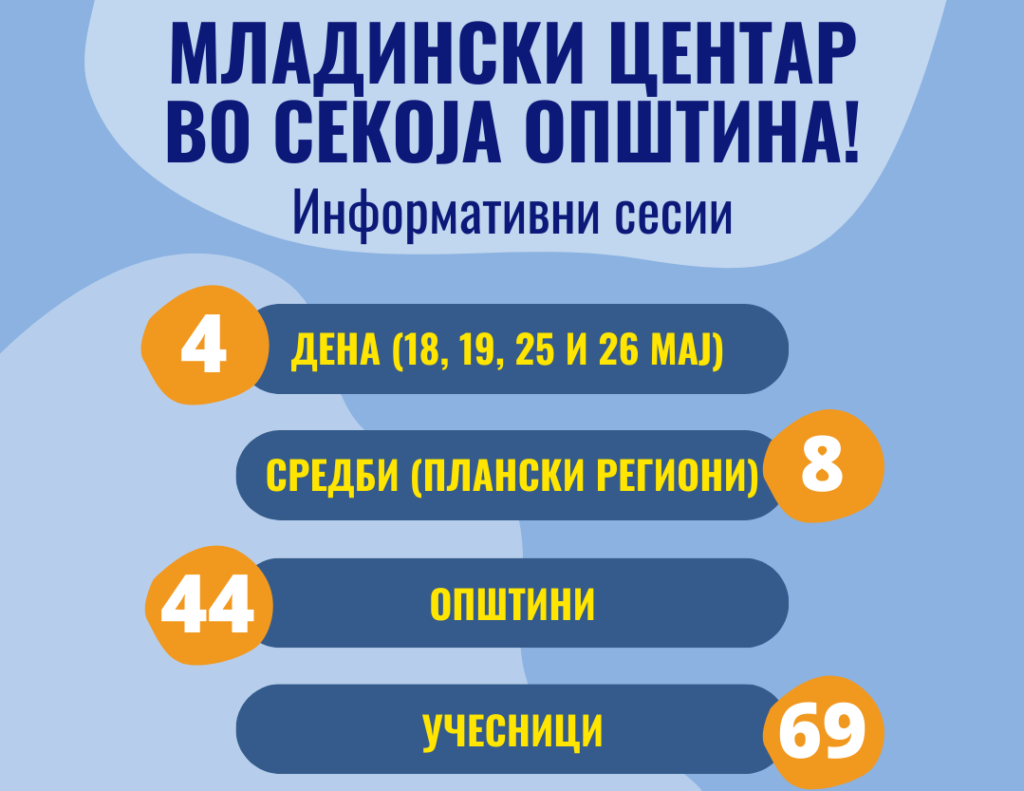
Opening of the youth center in Bitola is ongoing work in progress. In the meantime, the Union for Youth Work held press release with the status of the youth centers across the country that you can see it here. In the winter of 2020/2021 the first educational program for recognition of youth work on a state level was held. This program also provides means for formal recognition of youth workers who are working with youth for many years informally. YMCA was part of this process, and it is now among the first organizations in our country that has state recognized youth workers among it’s staff. Since 2019 YMCA is in collaboration with several local youth NGOs in order to foster establishing youth center in the city. The process for recognition of the youth work in Macedonia is lead by the Union for Youth Work, which is a network of organizations that promote youth work in which YMCA is one of the co-founding member associations.
Youth Guarantee

YMCA with its representative was included in the workshop entitled “Youth Guarantee” realized in May 7-8. It is a project implemented by the National Youth Council of Macedonia – NMSM in cooperation with the Coalition of Youth Organizations – SEGA and with the support of UNDP, the Ministry of Labor and Social Policy and the Employment Agency and involves work on the promotion of the Youth Guarantee through field workers. The “Youth Guarantee” measure enables young people up to the age of 29 who are not in employment, nor in education or training (NEET) to get a suitable job offer, continue their education or be involved in any of the active employment programs and measures within four months after they registered as unemployed persons in the Employment Agency. You can see more photos from the event here.
Critical Mass #62
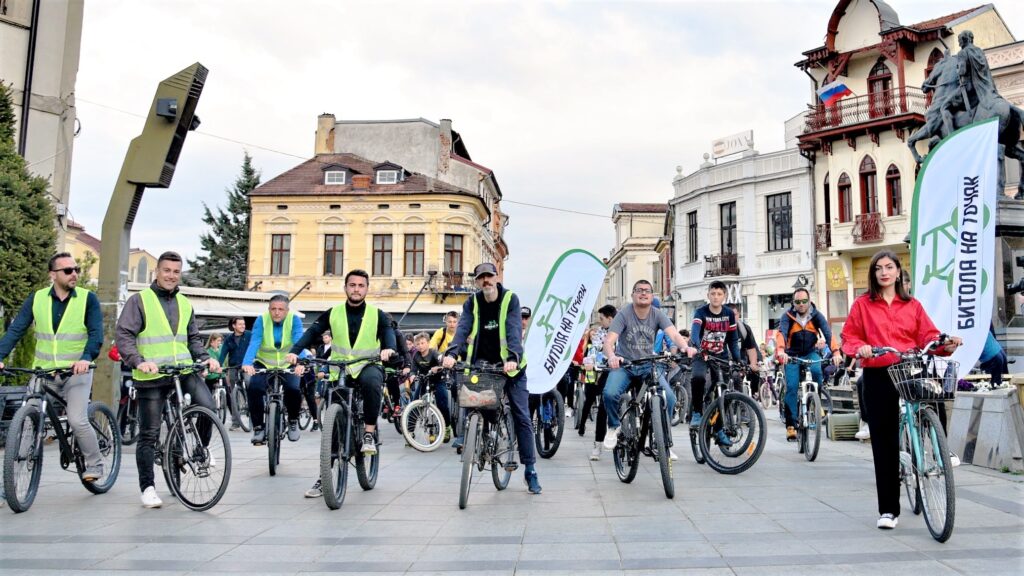
In May 2014, the citizens’ initiative Bitola #naTocak initiated the first #Critical Mass. Then, for the first time, we called the citizens to come out and send an unambiguous message to the public officials that the traffic in Bitola is practically violence on the asphalt that is nurtured and nourished by the policies that have been practiced for decades, especially in recent years. All this results in pushing and chasing the citizens who move in alternative ways (on foot, on bike, with supportive equipment due to physical disabilities, parents with small children, etc.) from the city streets and forcing them to switch to moving by car as the only way which is safe under the given conditions. Here, after 8 years, the city is not only facing the same problem, but is starting to relentlessly fight with the sudden increase in the number of vehicles, which creates an additional suffocating traffic jam, and citizens who want to be active and move in alternative ways to be thrown into the fire along with the heavyweights on the streets. What we expect from local elected officials is to show a rudimentary sense of safety to move around the city and invest in sustainable modes of movement through safe and comfortable pedestrian and bicycle infrastructure. As concerned citizens, we have always been an ally of the Municipality, pointing out to the local authorities that this traffic system is unsustainable and that the Municipality, after decades of investment only in the replacement of asphalt and widening of the streets for the purpose of flow and comfort for cars, it is time to turn back and to see that he has forgotten his citizens who move daily in the city streets in extremely unsafe conditions. In spite of the fact that the citizens came out on the streets 61 times with clear messages, the influence of the Municipality remains 0 kilometers of bicycle infrastructure built. In the meantime, numerous widened and newly opened streets are being built without planning bicycle traffic. Numerous promises for a final turnaround and planning of investments, so that Bitola becomes first of all a city for people, and not a city choked with motor vehicles. In the last local elections all parties and groups that make up the city Council were UNANIMOUS that our reactions are justified and necessary and that they will advocate for changes in traffic planning. When we already have that consensus, we see no reason for further delays. Bitola can become a cycling city in one mandate if it is set as a strategic objective. For now, we don’t see that. While the whole world invests in sustainable lifestyles, we remain stuck in the past. You can see more photos from the event here.
Label of Trust Workshop
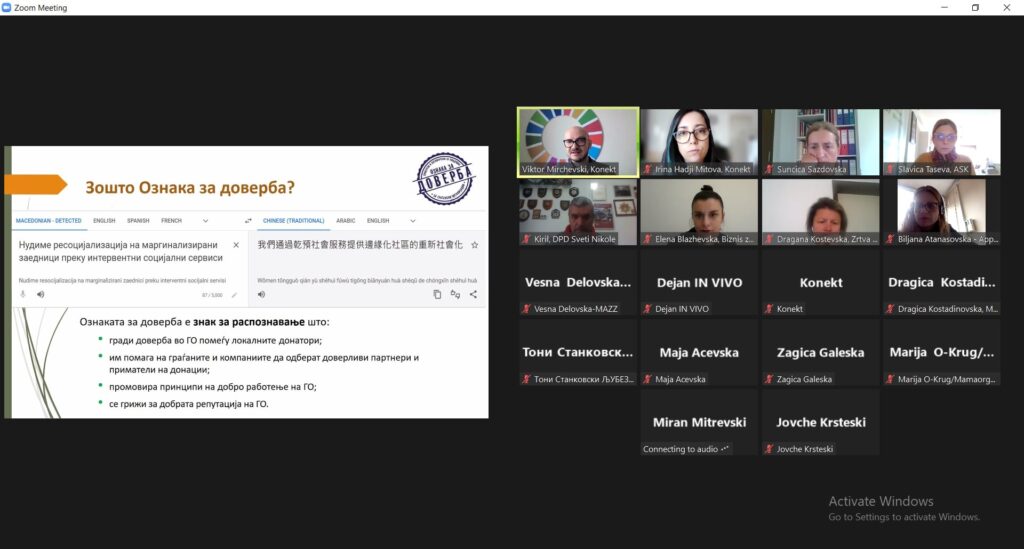
On 07.02.2022, 17 civil society organizations got acquainted with the standards of the Label of Trust and the benefits of using it through an online presentation. Among them was the YMCA youth association with its representative. The trust mark is a self-regulatory system that aims to make it easier for citizens and companies to choose trustworthy organizations to which they can donate. It strives to increase long-term trust between civil society organizations (CSOs) and local donors. The label is obtained through a carefully created process and criteria for transparency, accountability, performance results, compliance with legal regulations, etc. Civil organizations that possess the trust mark are good partners of citizens, but also other stakeholders in the community. Why donate to an organization that holds the label of trust? To acquire the label of trust, a CSO has to adhere to a certain set of principles and criteria in the following areas: To receive the trust mark, civil organizations first perform a self-assessment, that is, they fill out a questionnaire for the evaluation of their work, and then the board of the trust mark checks all the documentation and additional meetings with the CSO. At this link, you can view the application guide for obtaining the designation. At the end of this process, the Board decides whether the CSO will receive the trust mark.
Youth Council in Bitola
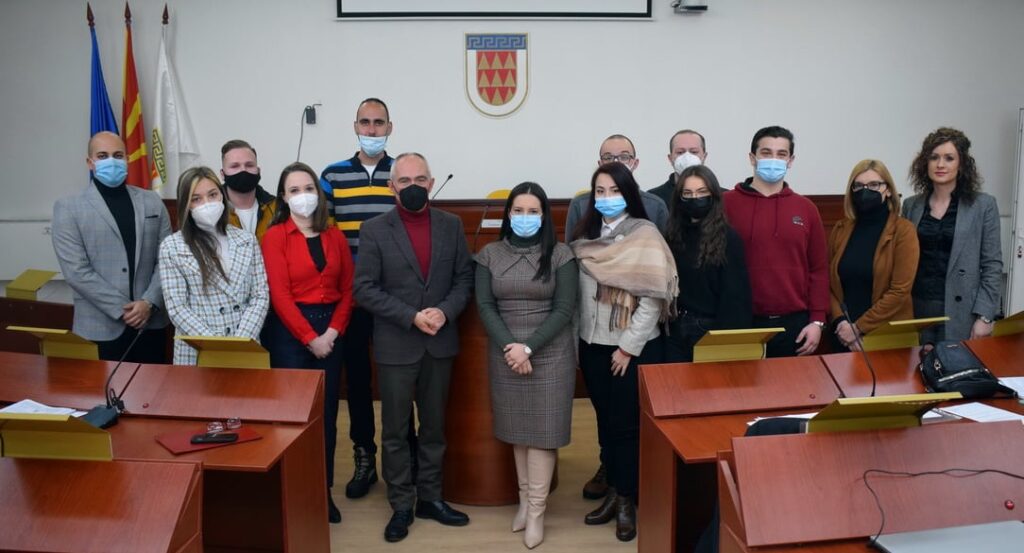
On February 2, 2022, the constitutive session of the local Youth Council took place in Bitola Municipality. In addition to its project contributions, the YMCA actively engages in the city by participating in the local Volunteering Council. Now, the YMCA extends its involvement in the Youth Council with Ivana assuming the role of President. We extend our best wishes to her and the entire team for success! Ivana Atanasovska was chosen as the Youth Council President from two candidates. Mayor Toni Konjanovski addressed the nine council members, expressing hopes for their future endeavors and encouraging the generation of constructive ideas and proposals. These efforts aim to retain youth in the city and collaborate with local self-government to improve the Municipality’s future. Gabriela Ilievska, the Council President, conveyed her belief that the well-known saying “youth is our future” will be substantiated through the Youth Council’s actions, demonstrating the significant impact young individuals can make in preventing the emigration of their peers. Both the Council President and the Mayor stressed the Municipality’s readiness for continuous collaboration with the Youth Council, anticipating numerous initiatives and projects within legal constraints. For additional photos, refer to the following link.
YMCA West Balkan Initiative
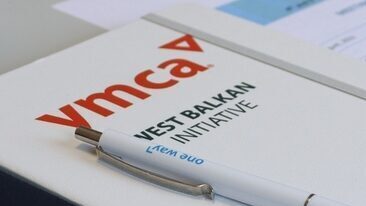
West Balkan Initiative started during the pandemic period and with the idea of improving self-sustainability, good governance, and idea-sharing for strategical funding as a group in the balkan region. The leaders of YMCAs in N. Macedonia, Kosovo, Albania, and Serbia hold regular meetings where they discuss joined strategies and national plans in order to create the action plan for this West Balkan Initiative. The goal is to develop every YMCAs local movement, reaching out to more communities with this joint effort, sharing our mission and vision. Follow our facebook page for updates on this!